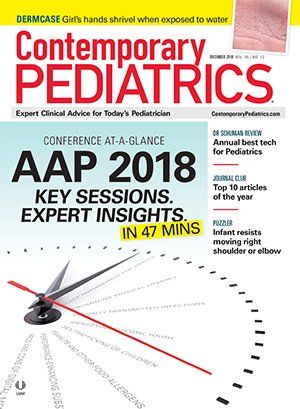Lots of breastfeeding reduces infant stress
Infants who are breastfed exclusively show less hypothalamic stress response than infants who have been breastfed little or not at all, according to a study in 42 healthy, 5-month-old infants and their mothers.
Michael G Burke, MD

Infants who are breastfed exclusively show less hypothalamic stress response than infants who have been breastfed little or not at all, according to a study in 42 healthy, 5-month-old infants and their mothers.
Half of the infants in the study group had been breastfed continuously since birth (high-breastfeeding group), whereas the other half had been breastfed for no longer than 3 weeks or had not been breastfed (low-breastfeeding group). Investigators compared cortisol stress reactivity in the 2 groups of infants by analyzing saliva samples before and 30 minutes after conducting a mother-infant interaction procedure in which the mother is unresponsive to her infant-maintaining a “poker” face and not interacting with the child. (This “still face” has been shown to elicit cortisol reactivity associated with DNA methylation of an important regulatory region of the glucocorticoid receptor gene.)
Infants of mothers in the high-breastfeeding group had less DNA methylation of the glucocorticoid receptor promoter and decreased cortisol reactivity than did infants of mothers in the low-breastfeeding group (Lester BM, et al. Pediatrics. 2018;142[4]:e20171890).
Thoughts from Dr Burke
These researchers used breastfeeding as a proxy for maternal nurturing activity. Using this model, they showed how early maternal behavior can cause modification of gene expression, which has long-term implications for how the child responds to stress. Here’s 1 more reason not only to support new mothers in their efforts to breastfeed but also to watch for medical and social conditions that limit a mother’s ability to nurture her baby.
